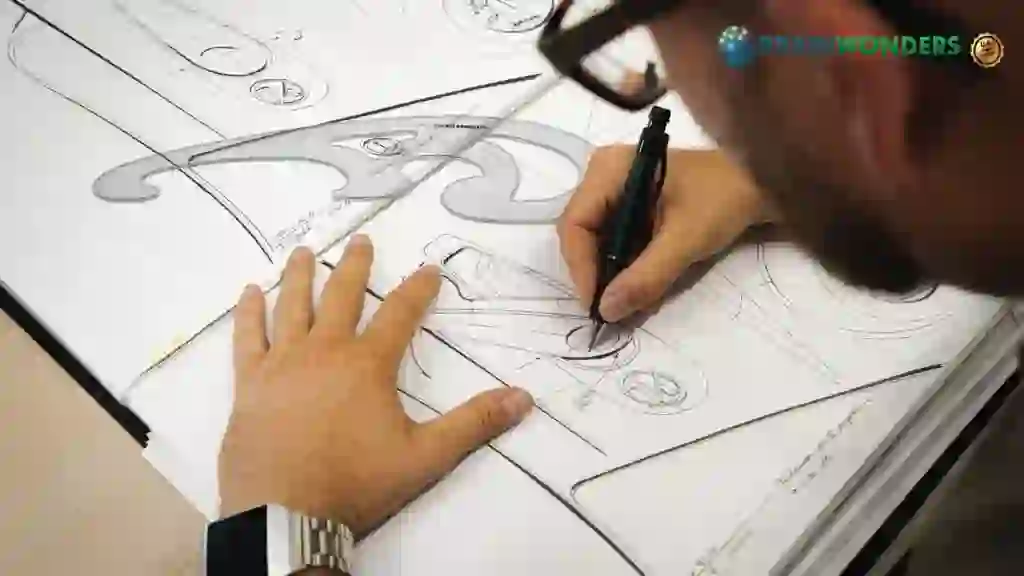How to become a Ceramic Engineer
Overview, Courses, Exam, Colleges, Pathways, Salary

Overview
Who is Ceramic Engineer ?
Ceramic engineers are essentially specialized materials engineers that are engaged in manufacturing non-metallic and inorganic objects through various processes. Ceramics such as glass, brick, cement, porcelain have a wide range of applications involving heat-resistant materials, electrical ceramic materials, coatings to protect the metal exterior of a spacecraft, china dishes, electric insulators, abrasives, cement, glassware, nuclear reactors for blast furnaces and jet engines and so on. Ceramic engineers can be found working in research and development, exploring new uses for ceramic products or developing new ceramic materials synthetically or advancing the technology of existing ceramics. Some ceramic engineers are involved in the production, directing the purification process of raw materials or designing equipment used in the manufacturing and operation of the ceramics and so on. Some also oversee the installation and operation of ceramic equipment in customers' plants or show customers ways to use ceramics to solve their design and production problems. Moreover, due to the versatile nature of ceramic engineering, aspirants have the opportunity to work in different industries such as Aerospace, Mining, Construction, Electronics, Medical, Optical Fibers, Sports, Transportation, Military and so on.
Typical day at work
What does Ceramic Engineer do?
The roles and responsibilities of a ceramic engineer include the following tasks:
- Conduct research to explore new applications of ceramic products
- Develop and optimize processing techniques
- Design tools, equipment, technology, apparatus or machinery for the manufacturing or handling of ceramics
- Conduct different tests to evaluate the physical and chemical properties of materials
- Assess and analyze the results of the test
- Determine combinations of materials that have the potential to improve the quality or usability of the products
Abilities and Aptitude needed
What are the skills, abilities & aptitude needed to become Ceramic Engineer?
Aspirants must have certain attributes and interpersonal skills in order to become a competent ceramic engineer. Ceramic engineers must have great problem-solving skills, communication skills, team-working skills and endurance. In addition, it helps if textile technologists have commercial awareness about the industry they wish to work in.
Pathways
How to become an Ceramic Engineer?
Entrance Exam
Entrance Exam for Ceramic Engineer ?
Courses
Which course I can pursue?
Best Colleges
Which are the best colleges to attend to become an Ceramic Engineer?
Industries
Which Industries are open for Ceramic Engineer?
- Manufacturing: Ceramic engineers work in manufacturing industries that produce ceramic products such as tiles, sanitaryware, refractories, electrical insulators, and advanced ceramics for industries like aerospace, automotive, and electronics.
- Research and Development: Research institutions and laboratories employ ceramic engineers to conduct research, develop new ceramic materials, improve manufacturing processes, and explore applications of ceramics in various fields.
- Energy and Environment: Ceramic engineers contribute to industries related to energy production, including the development of ceramic components for fuel cells, solar panels, and energy storage systems. They also work on environmental applications such as ceramic filters for air and water purification.
- Aerospace and Defense: Ceramic engineers play a role in the aerospace and defence industries, working on applications such as ceramic matrix composites, heat-resistant coatings, and lightweight ceramic components for aircraft and defence systems.
- Biomedical and Healthcare: Ceramic engineers work on biomedical applications, including the development of bioceramics for dental implants, bone grafts, and medical devices. They contribute to the field of tissue engineering and regenerative medicine.
- Electronics and Semiconductors: Ceramic engineers manufacture ceramic substrates, capacitors, and insulating materials used in the electronics and semiconductor industries.
- Chemical Processing: Ceramic engineers contribute to industries involved in chemical processing, such as catalyst manufacturing, where ceramic catalyst supports and membranes are used.
internship
Are there internships available for Ceramic Engineer?
Yes, internships are available for individuals pursuing a career as a ceramic engineer. Ceramic manufacturing companies, research institutions, and engineering firms often offer internships to provide practical experience in the field. To find internships, explore the career websites of relevant organizations, network with professionals, and utilize job portals. Tailor your application materials to highlight your coursework, skills, and any previous experience in ceramic engineering. Securing an internship as a ceramic engineer can provide valuable industry exposure and hands-on experience in ceramic materials and manufacturing processes.
Career outlook
What does the future look like for Ceramic Engineer?
The career outlook of a ceramic engineer can be said to be promising. Working conditions depend on the area of employment: it could be a laboratory, a modern office or even a construction site. A ceramic engineering fresher may take on junior roles in a production or research team and gradually move onto to become project supervisors, department heads. Ceramic engineers are offered salary packages on the basis of the industry they work in, their educational qualifications and job experience and also the location.






